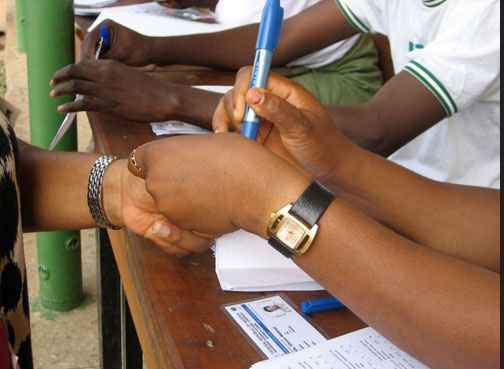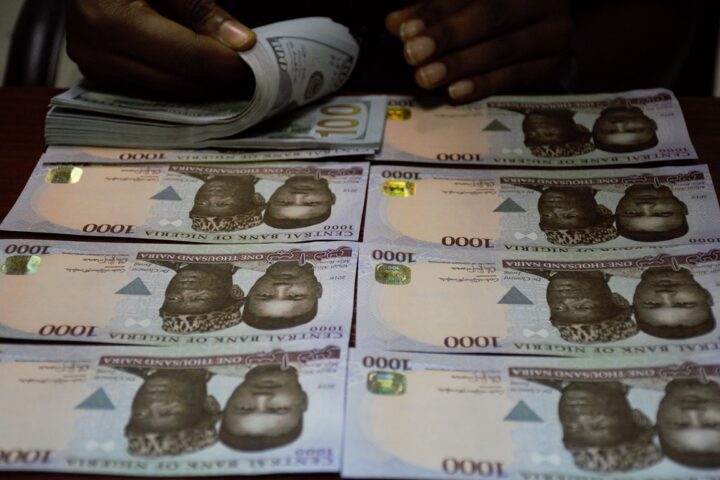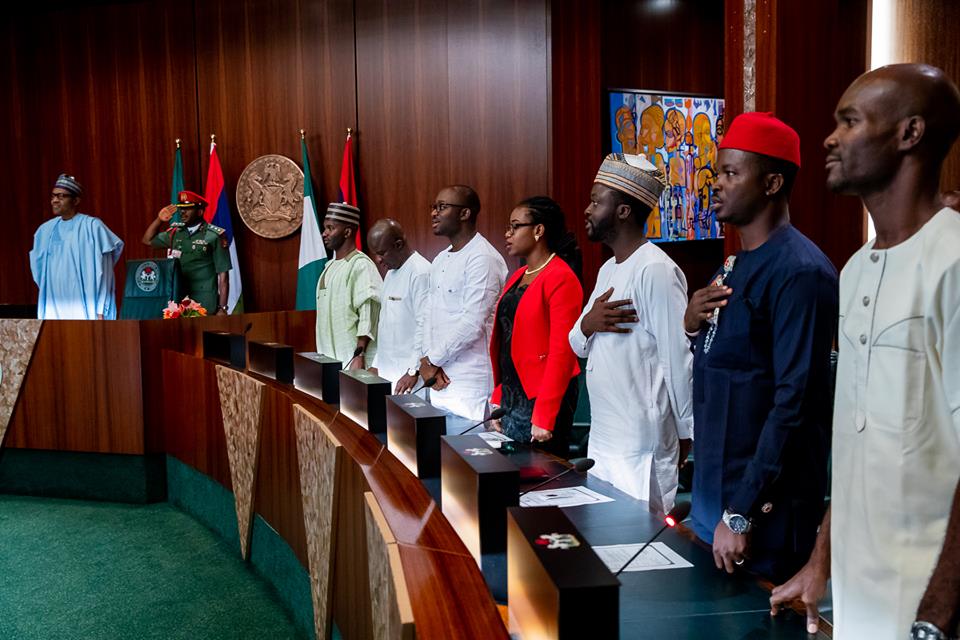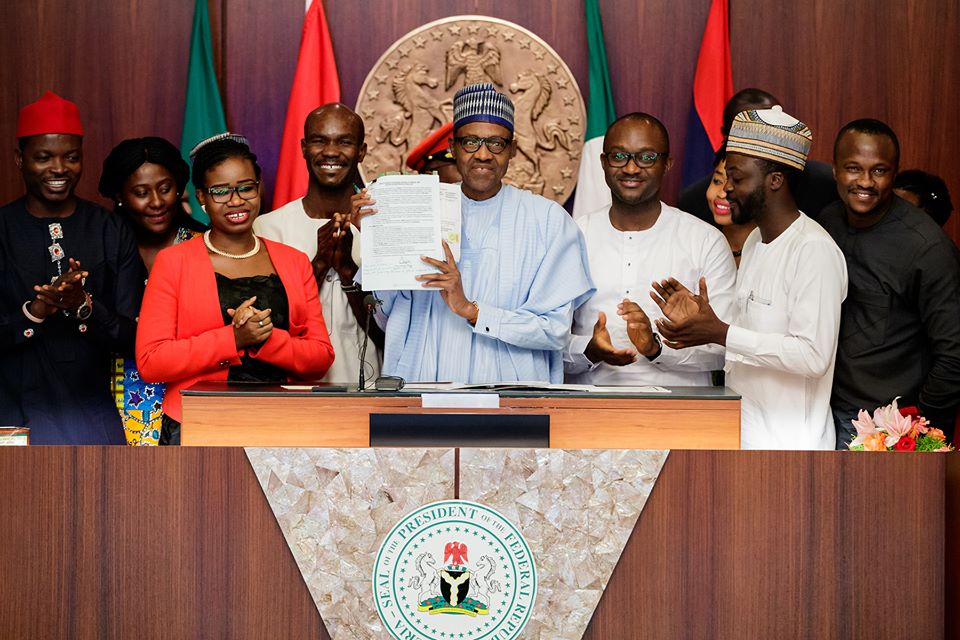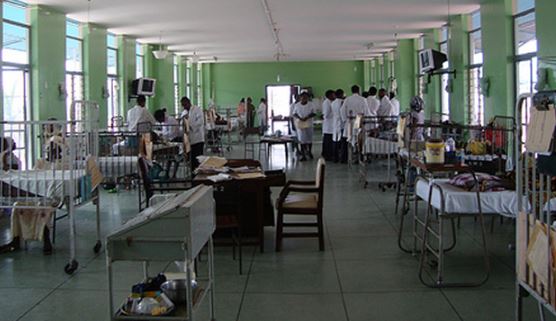File photo depicting voter registration in Nigeria
BY TEMITAYO LAWAL
Nigerians are apparently more politically aware than ever. Serious political discussions now form the core of our social conversations and interpersonal interactions. By just being within the earshot at casual gatherings or even official events, you’ll be surprised at how conscious Nigerians have, for various reasons, become and how excited they are to participate at different levels.
Interestingly, these nationwide political discussions have produced a new, favourite song, “Go and get your PVC!” Admittedly, this mass orientation and call to political participation is good in that it deepens democracy and widens the electorate base. I, however, hold that this is a dangerous trend that will only lead us back to square one or even worse if we don’t refocus our strategy. To make a statement, we need do more than just sensitise people to simply perform their civic duty. Voters need to do more than cast their ballots; this is the way to go if we must proceed.
At 186 million, the total registered voters in the 2015 elections was 68 million and those who voted eventually were 29 million. This number of registered voters represents only 36.3% of the population while the voters’ turnout was 44% of the registered voters.
Advertisement
This indicates that there was (as always) a huge gap between the number of people who registered to vote and those who eventually voted. What this explains is that just some of us decide our future. This is the reality, but we must redirect it to achieve better results. Apart from making efforts to widen the electoral base, just a light thinking will reveal that more rigorous inputs must go into upping the quality of our votes. How about channeling the bulk of these efforts into educating the voting populace on the sanctity and significance of choosing a leader based on the structural, sustainable innovations rather than stomach infrastructure? Have we ever paused to evaluate how these pecuniary, transactional choices have cost us as a country? Isn’t it exigent to put under proper scrutiny what our voting choices are? I wager it is.
The definition of a preferred candidate to many Nigerians is a politician who could dash out some thousands or distribute rice in cups. This is a widespread political behaviour that must change. It doesn’t work. It cannot work. It is even saddening because these cash gifts are tokens and can never take anyone out of poverty. One then wonders how we do this every four years at the expense of our future and unborn generations.
Statistics show that our people wallow more in penury as new elections come by. Poverty indices have never looked dismal. According to a February 2018 IMF Country Report, “Latest publicly available data suggest that the poverty headcount is high, with 62.6 percent of the population living below the poverty line (HNLSS 2010). Poverty rates reached above 80 percent in one quarter of states in 2010—in these states, rates were double the ones observed …” It has always risen particularly since the advent of this democracy. Voting for myopic politicians for token in return is, in plain terms, worse than useless. It must stop.
Advertisement
Also, the self-centered, ‘my-share-is-paramount’ logic is crappy and must be ditched if we must move the trajectory to that of great nations. Apart from shattering the merit system, what else have we achieved with it? The unemployment figures, for instance, have skyrocketed. The National Bureau of Statistics explained in their 2016 Unemployment/Underemployment Report that the country’s unemployment rate in Q3 2017 stood at 18.8%, representing an increase of 4.6% from Q4 2016.
It is not rocket science that Nigeria, after five elections in the Fourth Republic has not embarked on sophisticated, encompassing national health care reforms. Substantial inroads have not been made to fix our gaping infrastructure deficits. One then begins to wonder what exactly informs our voting choices. They must be ditched, whatever they are, because we are worse for it.
We must be a nation of political principles and values. These core principles should determine whoever gets our votes in whatever elections. This should be the lens through which we screen candidates regardless of the vague promises they make. We must take charge of the process. With this orientation, it means we won’t join the bandwagon just because it is the winning team. It means we won’t put our future in the hands of old, corrupt politicians with self-acclaimed rebirth hoping for a good governance miracle. Doing this will be like a drunkard drinking alcohol from a coke bottle. It is simply self-deceit. He will still get high. We must reject these old politicians who brought the nation to its knees. We believe them as reformed messiahs at our own peril. They are simply wolves in sheep’s clothing.
We must also establish structures to hold our elected officials accountable. It is not enough to stimulate a mass PVC collection while we sit back and get inundated with politicians’ vague promises every four years. There must be some strategy. This is time for civil society organisations, NGO’s and professional bodies to build a strong, hybrid structure that will research the key structural problems we have in the country, aggregate sustainable policy solutions and produce an encompassing document- something akin to a People’s Manifesto. This could then form the basis for people’s specific, structural demands from politicians. It makes accountability straightforward.
Temitayo Lawal is an analyst at WNT Capitas, a communications consultancy firm, and a member of The Peter Bauer Foundation (aka The Liberal Forum).
Advertisement
Add a comment
